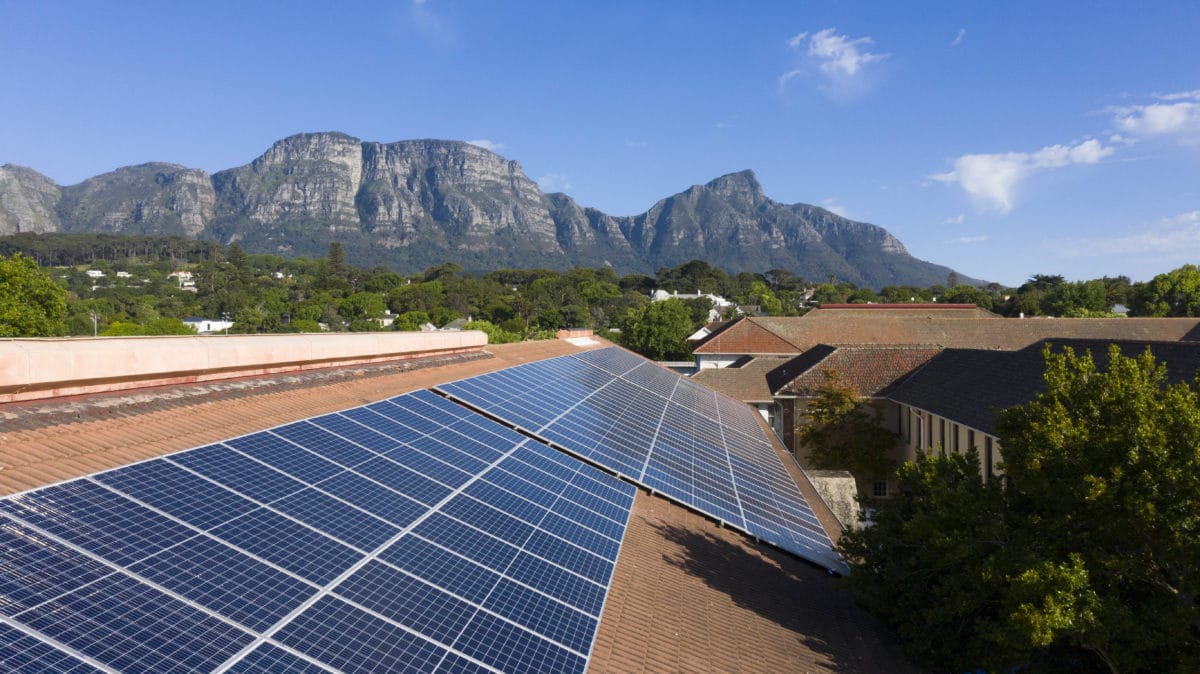A gravity-based energy storage project in Sudan was among the projects considered in a recent webinar hosted by trade body Solarpower Europe and EU decentralized renewables program GET.invest, which examined the potential for solar to drive electricity access in sub-Saharan Africa.
Ali Yasir, of the International Renewable Energy Agency (IRENA), examined the role solar can play in reaching the UN sustainable development goal of universal energy access, in particular through its deployment in humanitarian and healthcare settings.
With electrification not proceeding fast enough to meet the UN ambition of universal energy access by 2030, solar could offer a fast-track solution, according to Yasir, particularly when installed with the help of innovative business models. “Off-grid renewable energy technologies represent a cost-effective, environmentally sustainable, rapidly deployable and modular tool to accelerate the pace of electrification,” said IRENA's program officer for decentralized renewable energy.
Healthcare
A founding partner and steering committee member of the Global Health and Energy Platform of Action convened by the World Health Organization, IRENA is also working with the African Union Commission to electrify health facilities across the continent to speed up Africa's Covid-19 response effort.
Yasir said IRENA is aiming to bring clean, affordable power to rural health facilities in Burkina Faso and a gap analysis and assessment of 50-60 such sites, to act as a blueprint for a wider roll-out, is expected to be completed next month.
The organization has also deployed solar lighting kits, water pumps, mini-grids, and grid-connected renewables to bring power to refugees, in association with the United Nations High Commission for Refugees (UNHCR).
Refugee PAYG
With IRENA estimating 90% of the world's more-than-70 million displaced persons have no access to electricity, another solution involves leasing solar home systems on a pay-as-you-go (PAYG) basis to the UNHCR for use in refugee camps.
Javier Ortiz–a technical advisor for the GET.invest program backed by the EU and the governments of Germany, Sweden, the Netherlands, and Austria–gave details of two solar-linked renewables projects where the European body was able to help local plans get off the ground.
One project to benefit from the help of GET.invest's ‘finance catalyst'–which links solar projects and companies with investors and finance–is the €36 million Haggar irrigation project in Sudan, which will pair 20 MW of solar generation capacity with 40 MWh of gravity-based energy storage.
Popular content
The high-risk nature of Sudanese investment saw GET.invest tap its investor network and persuade local stakeholders to get on board with the irrigation system planned by agribusiness GLB Farm, 100km north of Khartoum. The project involves Dubai-based Sudanese investment group Haggar, Dutch renewables company Photon Energy and Swiss gravity storage business Energy Vault SA.
Rupesh Hindocha, chief executive of Nairobi-based commercial and industrial distributed solar company Premier Solar Group also pointed to the key role storage will play in driving solar adoption. “While Hagger is using gravity, we are using lithium and other players are using molten salts, and this is a defining moment for on-site generation to really scale up across sub-Saharan Africa.”
GET.invest also helped Cameroonian off-grid renewables supplier Upowa scale up the distribution of PAYG solar kits in a €14.72 million project in its domestic market, by identifying sources of finance and grant support, including a €3 million loan from the EU-funded Electrification Financing Initiative.
Bankability
Ortiz warned the road to bankability for such projects is long, and can take up to two years.
In terms of challenges to off-grid solar, Rolake Rosiji, former Nigeria country manager for Nairobi-based M-Kopa, said educating people about the reliability of the technology was key. M-Kopa distributes solar products for a down payment of around 15% with customers then paying a daily fee for a year until the unit is paid for. Rosiji, treasurer of the Renewable Energy Association of Nigeria, said the company had attracted backing from the World Bank, U.K. government and Nigeria's Rural Electrification Agency.
Mismatch
While commercial and industrial (C&I) solar is making inroads, according to Laetitia Dubois, Africa business developer for French renewables outfit Akuo Energy, hurdles remain such as lack of access to finance and the mismatch between the 3-5-year business horizons of companies as diverse as miners and hospitality firms and the 20-25-year lifespan of solar projects.
Commercial solar businesses are pushing through administrative barriers and negotiating grid issues in Africa, said Dubois, however “to be competitive, you need to leverage your project with some depth but the banks require security mechanizations such as [a] parent-company warranty, a lot of credit, escrow accounts etc, and these are things that the C&I client are not necessarily happy to provide.”
Participants in the webinar agreed on the central role the PAYG approach plays in Africa, as well as the pivotal importance of energy storage to drive deployment of rooftop solar, geothermal, and wind solutions, especially in the C&I field.
This content is protected by copyright and may not be reused. If you want to cooperate with us and would like to reuse some of our content, please contact: editors@pv-magazine.com.


2 comments
By submitting this form you agree to pv magazine using your data for the purposes of publishing your comment.
Your personal data will only be disclosed or otherwise transmitted to third parties for the purposes of spam filtering or if this is necessary for technical maintenance of the website. Any other transfer to third parties will not take place unless this is justified on the basis of applicable data protection regulations or if pv magazine is legally obliged to do so.
You may revoke this consent at any time with effect for the future, in which case your personal data will be deleted immediately. Otherwise, your data will be deleted if pv magazine has processed your request or the purpose of data storage is fulfilled.
Further information on data privacy can be found in our Data Protection Policy.